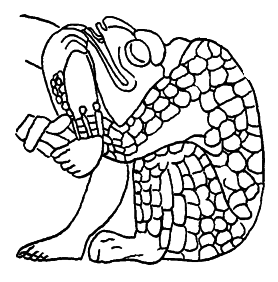On the
subject of
historical cognition and the man who possesses no other property than
his/her labour power

歴史的認識の主体について
On the
subject of
historical cognition and the man who possesses no other property than
his/her labour power

池田光穂
"The subject of historical cognition is the battling, oppressed class itself. In Marx it steps forwards as the final enslaved and avenging class, which carries out the work of emancipation in the name of generations of downtrodden to its conclusion. This consciousness, which for a short time made itself felt in the “Spartacus” [Spartacist splinter group, the forerunner to the German Communist Party], was objectionable to social democracy from the very beginning. In the course of three decades it succeeded in almost completely erasing the name of Blanqui, whose distant thunder [Erzklang] had made the preceding century tremble. It contented itself with assigning the working-class the role of the savior of future generations. It thereby severed the sinews of its greatest power. Through this schooling the class forgot its hate as much as its spirit of sacrifice. For both nourish themselves on the picture of enslaved forebears, not on the ideal of the emancipated heirs."
「歴史的認識の主体は、戦闘的な被抑圧階級そのもの である。マルクスにあっては、この階級はついに奴隷たることをやめて復讐する階級、幾世代の敗者において解放の仕事を完成する階級として、登場する。こ ういった意識は「スパルタクス(団)」においてもういちどしばらくは強められたことがあるが、社会民主党にとってはとうから不愉快なものだった。30年経 過のう ちに、社会民主党はたとえば、ブランキ——その強烈な名声は19世紀を震撼したものだ——の名をほとんど抹殺しおおせただけでなく、とくいげに労働者階級 に未来の諸世代の解放者の役だけをふりあてたのである。これによって社会民主党は、労働者のもっとも力量のある腱を断ち切った。党に学んだ階級は、たちま ち憎悪をも、犠牲への意志をも忘れ去った。なぜなら、憎悪とか犠牲への意志とかは、圧政下にあった先人のイメージによってやしなわれるものであって、子孫 の解放とかいった観念によってやしなわれるものではないからである」(野村修・訳、123ページ)
[T]he man who possesses no other property than his labor power must, in all conditions of society and culture, be the slave of other men who have made themselves the owners of the material conditions of labor. He can only work with their permission, hence live only with their permission. - Karl Marx, Critique of the Gotha Programme, 1875
リンク
文献